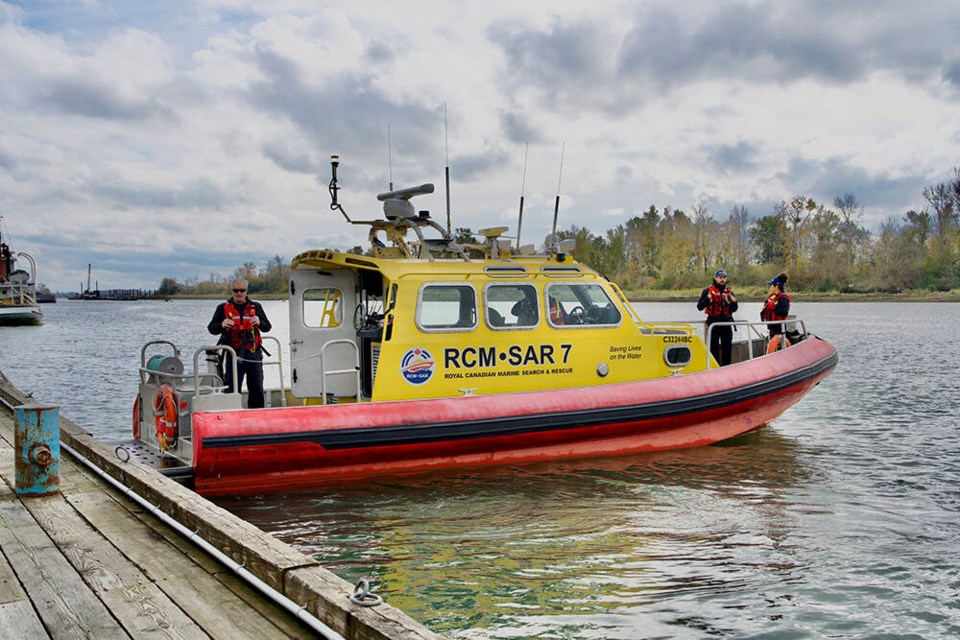I had the privilege recently of meeting with the coxswain and crew of the Royal Canadian Marine Search & Rescue (RCMSAR) Station 10 in Steveston and of boarding their high-tech vessel.
First, a typical scenario of people in trouble on the water and of their rescue — by an organization that just about everyone thinks is part of government, but in fact are community volunteers.
It’s 11 p.m. on a stormy December night and a 35-foot pleasure boat has run onto the rocks in the shallow part of the Salish Sea.
The family on board was trying to make it back to Steveston Harbour before nightfall, but the waves slowed them down and then tossed their boat into the rocks.
Their boat was being battered by the storm surge. The husband and wife and their two children were stuck in a life-threatening situation.
They radioed for help and the RCMSAR team from Steveston responded to the call.
The all-volunteer crew dropped whatever they are doing — including sleeping — and rushed to the rescue boat.
The crew has a mandated standard of 30 minutes to get to and launch their rescue boat.
In an incredible 25 minutes of the call, the crew and boat were on their way.
The custom-designed rescue boat and highly trained crew moved quickly through the stormy seas.
And the family is safely rescued.
This typical rescue demonstrates how RCMSAR Station 10 saves lives.
RCMSAR Station 10 in Richmond is one of 30 such marine rescue stations with 900 dedicated and professional volunteers located throughout the province.
This last year, these volunteers were involved in more than 450 rescue missions along the coast of British Columbia, often in demanding and difficult weather conditions.
They make themselves available 24 hours a day, 365 days of the year for their communities.
For stranded or storm-tossed boaters, commercial fishers and others, they are lifesavers.
I was hosted in my tour by Mike Janicki, a coxswain for Station 10 and RCMSAR veteran with 30 years of volunteer service.
Mike has given more than 2,500 volunteer hours and been involved in 225 life-saving missions.
The station is entirely staffed by volunteers who train and qualify for the challenging tasks at their own expense.
RCMSAR fundraises to meet its costs, including the equipment and material that it requires for sometimes difficult marine rescues.
The high-tech vessels that are essential for the search and rescue operations are designed and built to operate in all weather conditions, day and night.
RCMSAR works closely with the Canadian Coast Guard and they are often called upon to be the first responders for marine emergencies.
For more information about RCMSAR or its volunteer opportunities, go to their website.
Got an opinion on this story or any others in Richmond? Email your thoughts or story tips to [email protected].



